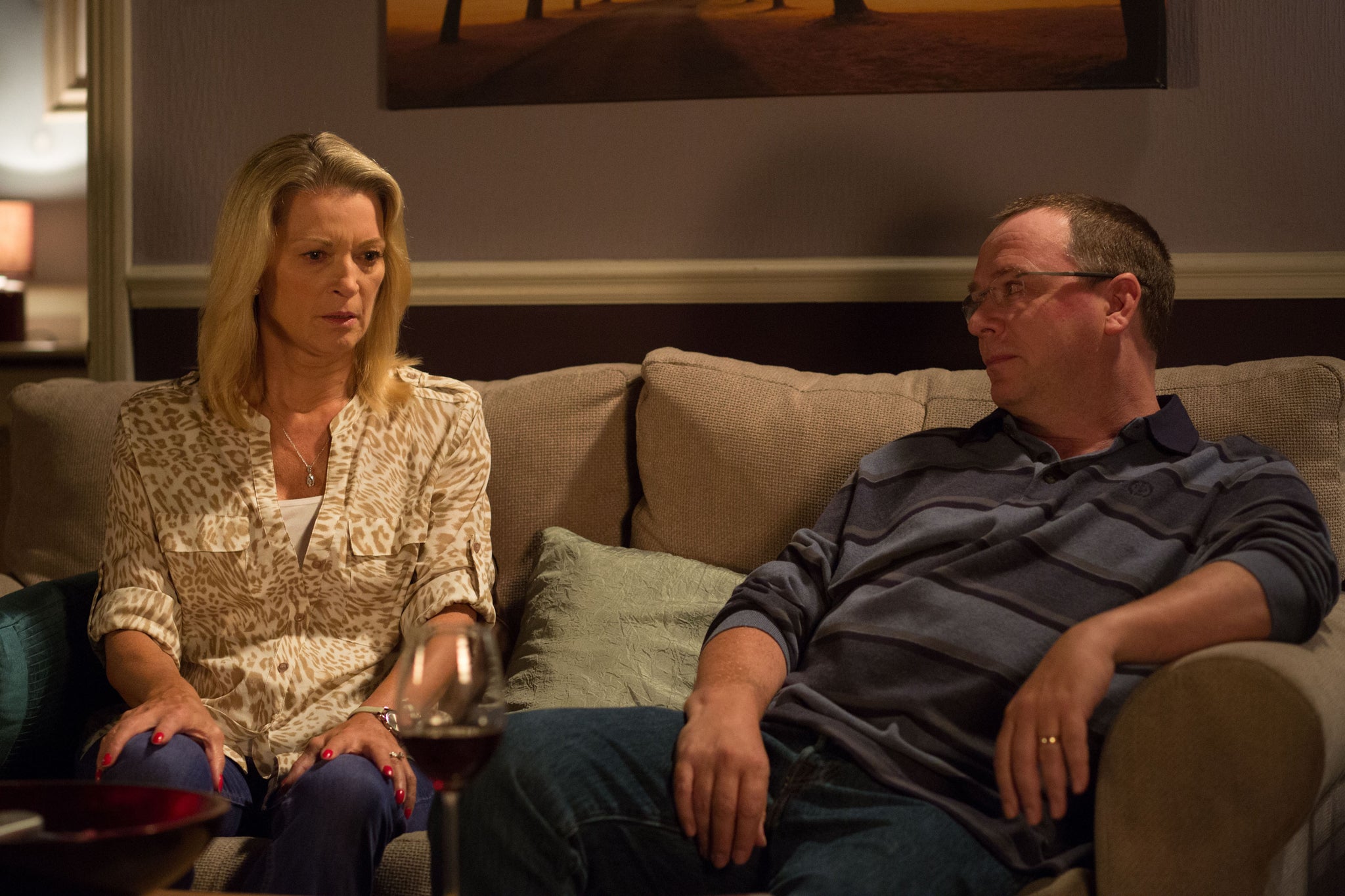Sorry BBC, but EastEnders doesn’t need to be balanced
Since when do drama and comedy have to be unbiased about the Europe referendum?


Your support helps us to tell the story
From reproductive rights to climate change to Big Tech, The Independent is on the ground when the story is developing. Whether it's investigating the financials of Elon Musk's pro-Trump PAC or producing our latest documentary, 'The A Word', which shines a light on the American women fighting for reproductive rights, we know how important it is to parse out the facts from the messaging.
At such a critical moment in US history, we need reporters on the ground. Your donation allows us to keep sending journalists to speak to both sides of the story.
The Independent is trusted by Americans across the entire political spectrum. And unlike many other quality news outlets, we choose not to lock Americans out of our reporting and analysis with paywalls. We believe quality journalism should be available to everyone, paid for by those who can afford it.
Your support makes all the difference.I had been wondering (well, almost) what has brought Kathy back to EastEnders after such a long absence from the character. Now, I think I can guess. She has come back to argue the case for staying in Europe, perhaps prompted by her experience of living on the continent for the last few years. Of course, her views will have to be balanced by a character who has decided to join the “Out” campaign. In the interests of balance, Barbara Windsor could also return, as a proponent of the ‘Out’ campaign, reclaiming ownership of the Queen Vic, a symbol of true Britishness.
Though I hadn’t previously thought that Europe and the referendum would be major talking points in Albert Square, I now know differently following the statement to Parliament’s European Scrutiny Committee by David Jordan, the BBC director of editorial policy and standards.
He said that BBC dramas such as EastEnders must abide by the same rules designed to avoid accusations of bias which apply to current affairs programmes. “The BBC Trust’s referendum guidelines cover all BBC output, not just news and constitutional matters,” he added. “It includes drama and comedy.”
Comedy too? So an Ian Hislop pro-Europe joke on Have I Got News for You will need to be balanced by a Paul Merton anti-Europe gag, one assumes. Thank goodness Fawlty Towers isn’t still going. An anti-Europe observation by the Major (of which there were many) would have had to have Manuel rushing in to sing the praises of Barcelona to keep on the right side of directors of standards and Parliamentary scrutiny committees. Come to think of it, Fawlty Towers was going at the time of the last European referendum in 1975. Perhaps the BBC didn’t have a grand-sounding director of editorial policy and standards then. Perhaps it was more interested in powerful drama and funny comedy.
I find it deeply depressing that the BBC, the greatest supplier of drama and comedy in this country, has revealed that it doesn’t really understand drama or comedy. Drama is not a debating society with motions for and against the proposition. It is, in part at least, an exploration of character, and those charcters might indeed be biased, or bigoted, or plain wrong-headed. It is a requirement of good drama to be provocative, to move, to make the viewer think and feel. It is not a requirement to show balance. Yes, it should hold a mirror up to society and to our lives, but that mirror does not have to reflect all of society and all of its arguments.
Good comedy has a simpler requirement. It needs to be funny. But that might be too politically naive a criterion for the editorial policy and standards department. With all the important and newsworthy happenings in Parliament in recent days, little attention may have been paid to the session that gave such an insight into the BBC’s thinking about drama and comedy. For me, though, it was the culturally the most alarming moment of the week.
Getting to the bottom of an uncomfortable truth
Hats off to Kasper Holten, the head of the Royal Opera, who is commendably unafraid to tell it like it is. At the ROH season launch the other day he talked of the opera he directed at the Sam Wanamaker Playhouse, the indoor venue at Shakespeare’s Globe. He described the Sam Wanamaker Playhouse as “both very beautiful and very uncomfortable.” He later told me that after sitting in that auditorium he knew that he must not make the first half of his own show more than 60 minutes. More, I assume, would be too much of a strain on the human body and human buttocks. Let’s have more Holten-style plain speaking from those at the top of the arts about the (dis)comfort levels at major arts venues.
A slogan for sadistic audiences
Mr Holten also talked at the same launch of the various marketing slogans used by opera houses to entice new audiences. I particularly liked the memorable one that used to be outside the Stuttgart opera house. Alerting passers-by to the operatic dramas that invariably end in disaster, the slogan said: “Come to the opera. Enjoy other people’s pain.” As Stuttgart isn’t using the slogan any more, a British venue should adopt it forthwith. Perhaps, with audience comfort levels in mind, it would sit well outside the Sam Wanamaker Playhouse.
d.lister@independent.co.uk
twitter.com/davidlister1
Join our commenting forum
Join thought-provoking conversations, follow other Independent readers and see their replies
Comments